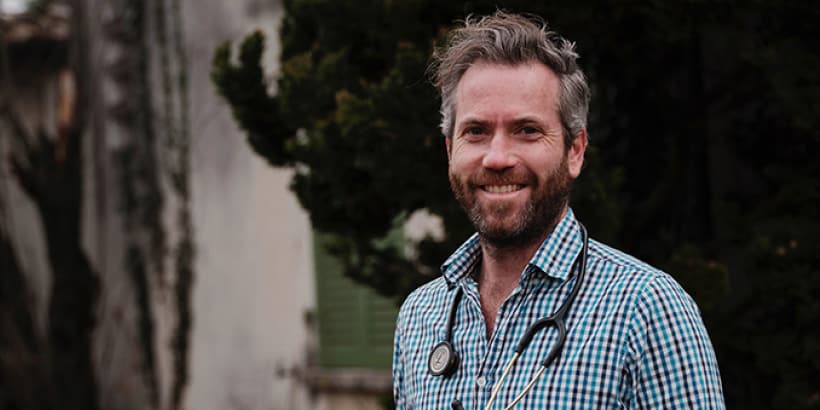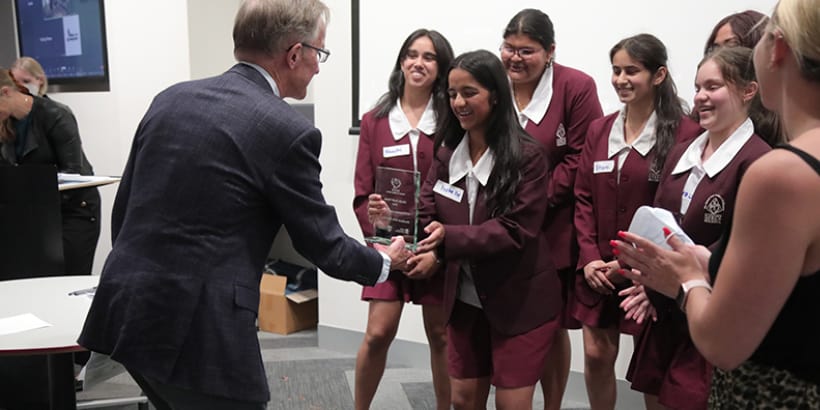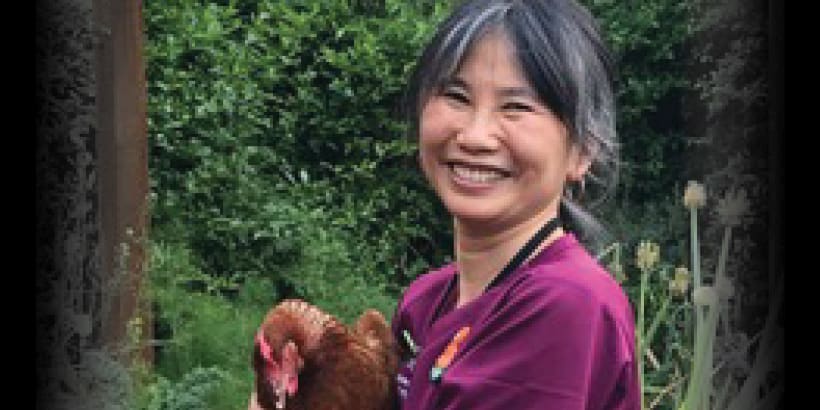
Life & Death Decisions
January 19, 2023
SALSA Youth Voices Actions in Western Sydney
January 19, 2023COLUMN
Heatwaves kill
Doctors have an important role to play in educating patients about the potential harms of heatwaves and what can be done to keep safe during extreme temperatures. Dr Kim Loo shares her tips.
More people die from heatwaves than all natural disasters combined – yet there is no portfolio in State or Federal politics with a Minister in charge of this area. It’s an issue that cuts across health, housing, urban design, industry, climate adaptation, and mitigation.
Industries who do not traditionally work together will have to. The end point is that our population can live and thrive in safe communities where they are protected from temperature extremes.
Outdoor workers, pregnant women, young children, babies, isolated people, those aged over 65 years, disabled people, and those with chronic diseases such as diabetes, obesity, heart failure, respiratory failure, and kidney failure, are all at high risk of heat stress.
As we heard towards temperatures over 40 degrees Celsius, everyone is at risk. Especially if it is humid as it’s hard to cool down.
So, how do we advise people to keep them safe during heat waves? There is no unified approach within Australia as this involves different Government departments and NGOs, so it’s different in each State.
As doctors where public health advice is not present, it is incumbent on us to deliver the advice to our patients, and to the general public. This is advice I give my patients.
Tips for a cooler home:
1. Water gardens in the morning and mulch around plants. This aides in cooling. I have planted trees over the years around my house specifically for cooling.
2. Seal all gaps in the home including windows, walls, and floorboards. This can be done with old socks or stockings.
3. Turn off all power points when not in use.
4. Create a cool room – find the coolest room in your house and use fans and air conditioners in this room.
5. Insulate the house.
6. Convert to solar energy.
Tips for hot days:
1. Check the temperature for the day on the BOM website and listen to emergency warnings.
2. Check that fridges and air conditioners are working. Make sure there are ice bricks and towels in the freezer.
3. Keep out of the heat by closing your curtains or blinds inside and having awnings open outside.
4. Find a cool place to visit if you cannot cool down your house.
5. Make sure your mobile phone is charged.
6. Wear light clothing.
7. Cool down with wet/cold towels and showers.
8. Have fans and air conditioners on at around 23 degrees (not any lower to save energy).
9. Cook cool meals so you are not heating up the house.
10. Drink plenty of water even if you don’t feel that thirsty. Try to avoid tea, coffee, sweet drinks, and alcohol as this can make you more dehydrated.
11. Wear a hat or sunscreen if going outside.
12. Make sure you have an esky for any food and medications in case of a blackout.
Children and pregnant women
1. Check often that children are not too hot and use the same cooling techniques for adults mentioned above.
2. Make sure when you are walking with a stroller to take the cover off so there is adequate air flow for your baby.
3. Offer children milk or water to drink. No sweet drinks as this can make dehydration worse.
4. Dress children in loose light-coloured clothing.
5. Drink plenty of water if you are breast feeding.
6. If you go outside to a playground, make sure the play equipment is not hot as there are many playgrounds that are made from materials that absorb heat.
Elderly and those with chronic health conditions
1. It is important that patients over 65 years old and/or those with chronic health conditions have a plan with their GP and pharmacist for a heatwave.
2. It is crucial that there is a next of kin or friend that people can connect with and look out for them on hot days.
Pets
1. Many pets are vulnerable to heat. I have chickens and I make sure that there are multiple sources of cool and clean water, and cold food on hot days.
People working outside
1. Heat waves are deadly for outdoor workers if they don’t take adequate rest breaks and rehydrate. Use the above tips and take plenty of breaks in the shade. A straw poll of my own patients working in private companies tell me there is no heat policy that guides them. This needs to change.
It’s important that our community understands the dangers of heatwaves. Heatwaves are changing and becoming more dangerous and need to be effectively communicated by the health sector as we bear the brunt of this in primary care and our already overloaded hospitals.
ABOUT THE AUTHOR
Contributed by Dr Kim Loo, general practitioner at Riverstone Family Medical Practice, AMA (NSW) Councillor, and the NSW Chair of Doctors for the Environment. Dr Loo is a passionate advocate for the environment determinants of health.

